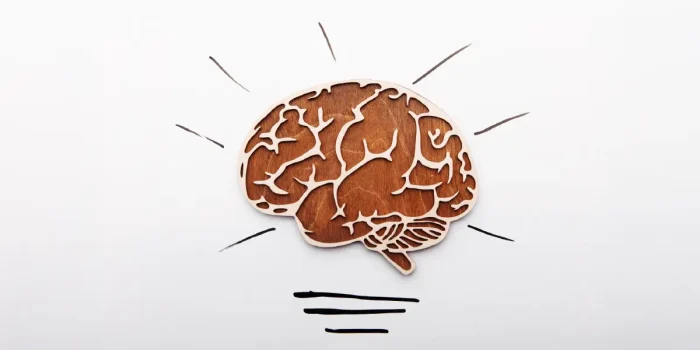Introduction
Every year, World Alzheimer’s Day on September 21st shines a light on one of the most urgent health challenges of our time. Alzheimer’s Disease Awareness is more important than ever, as Alzheimer’s disease—the most common cause of dementia—now affects more than 55 million people worldwide [1]. With populations aging, cases are expected to triple by 2050.
This year’s theme—“Ask About Dementia, Ask About Alzheimer’s”—calls for open dialogue. Too often, families hesitate to discuss memory loss, fearing stigma. Yet asking questions early can lead to better diagnosis, treatment, and support.
But what exactly is Alzheimer’s disease, how does it differ from dementia, and why does awareness matter more than ever?
Understanding Dementia and Alzheimer’s
Dementia describes a group of conditions that impair memory, reasoning, and daily functioning. Alzheimer’s accounts for 60–70% of these cases [2].
Common symptoms include:
- Persistent memory loss disrupting daily life.
- Difficulty completing familiar tasks.
- Confusion about time or place.
- Changes in mood and behavior.
Unlike normal aging, dementia is progressive and requires medical attention.
Ask About Dementia, Ask About Alzheimer’s
The theme “Ask About Dementia, Ask About Alzheimer’s” emphasizes dialogue. Conversations reduce fear and stigma, making it easier for patients and families to seek help.
- For families: Asking questions helps with early diagnosis and planning.
- For patients: It empowers individuals to understand their condition.
- For communities: Awareness campaigns foster empathy and support.
Knowledge begins with a simple question.
Risk Factors and Prevention
Alzheimer’s develops from a mix of genetics, environment, and lifestyle [3].
Key risk factors:
- Age over 65.
- Family history and genetics.
- Cardiovascular disease and diabetes.
- Obesity, smoking, and high blood pressure.
- Low physical activity and social isolation.
Preventive strategies matter. Regular exercise, balanced diets such as the Mediterranean diet, and lifelong learning activities keep the brain engaged. Social connection, adequate sleep, and managing mental health also play protective roles. Public health campaigns that encourage these habits can lower risks across entire populations.
Global and Local Impacts
The economic burden of dementia exceeds $1 trillion annually and continues to rise [4]. Families face not only financial costs but also emotional strain. Caregivers often experience exhaustion, depression, and lost income.
In high-income countries, memory clinics and support groups provide care, but many people still delay seeking help. In low- and middle-income countries, limited healthcare infrastructure makes diagnosis and long-term care even more difficult.
Workforce challenges also loom large: more trained specialists, community nurses, and social workers are urgently needed. World Alzheimer’s Day highlights these gaps, urging governments to strengthen national dementia plans, expand professional training, and increase research funding.
Alzheimer’s Disease Awareness in Action
Raising awareness means more than a single day. Communities can host workshops, public talks, or memory cafés to support families. Workplaces can train staff to better support colleagues living with dementia. Schools can integrate lessons that build understanding of aging and memory health.
Together, these actions help replace stigma with compassion.
A One Health Perspective on Alzheimer’s
The One Health approach highlights the links between human health, environment, and lifestyle. Air quality, diet, and access to green spaces all affect brain health. Preventing cardiovascular disease also lowers dementia risk [3].
By adopting this broader perspective, Alzheimer’s awareness moves beyond medicine—into shaping healthier societies overall.
Conclusion
This World Alzheimer’s Day, the theme “Ask About Dementia, Ask About Alzheimer’s” reminds us that conversation is powerful. Asking questions breaks stigma, encourages early diagnosis, and strengthens support networks.
Alzheimer’s is not just a medical condition—it is a global social challenge. Governments, healthcare systems, and communities must act together. By investing in research, supporting caregivers, and promoting prevention, societies can ease the impact of dementia.
Looking forward, innovation in diagnostics, treatments, and digital health tools will also be vital. Awareness must translate into action—from global policy commitments to everyday community support.
Awareness is the first step. Action ensures that future generations face dementia with greater understanding, stronger care systems, and renewed hope.
References
- Alzheimer’s Disease International (2023) World Alzheimer Report 2023. London: ADI. Available at: https://www.alzint.org/resource/world-alzheimer-report-2023/
- World Health Organization (2021) Dementia Fact Sheet. Geneva: WHO. Available at: https://www.who.int/news-room/fact-sheets/detail/dementia
- Livingston, G., Huntley, J., Sommerlad, A., Ames, D., Ballard, C., Banerjee, S. et al. (2020) ‘Dementia prevention, intervention, and care: 2020 report of the Lancet Commission’, The Lancet, 396(10248), pp. 413–446. doi:10.1016/S0140-6736(20)30367-6. Available at: https://doi.org/10.1016/S0140-6736(20)30367-6
- Alzheimer’s Disease International (2018) From Plan to Impact: Progress towards targets of the Global action plan on dementia. London: ADI. Available at: https://www.alzint.org/resource/from-plan-to-impact/













